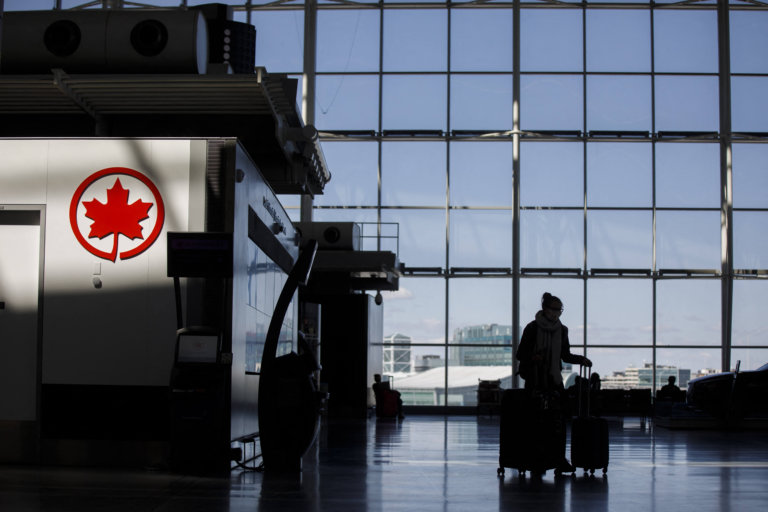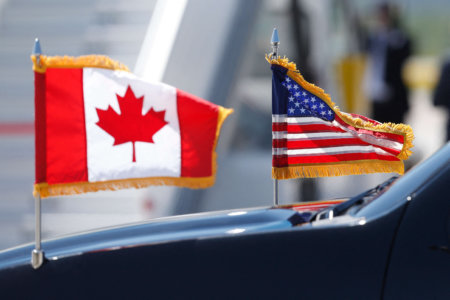
Good news for international students travelling to Canada: the country has recently announced plans to scrap pre-arrival COVID tests for fully vaccinated travellers.
Starting April 1, 2022, travellers will no longer need to present a negative COVID-19 test on arrival to Canada. This latest Canada border news was announced in a statement released yesterday.
“Adjustments to Canada’s border measures are made possible by a number of factors, including Canada’s high vaccination rate, the increasing availability and use of rapid tests to detect infection, decreasing hospitalisations and growing domestic availability of treatments for COVID-19,” Minister of Health Jean-Yves Duclos said.
“As vaccination levels and healthcare system capacity improve, we will continue to consider further easing of measures at the borders-and when to adjust those measures-to keep the people in Canada safe.”
The new ruling applies to travellers arriving into Canada by air, land, or water. Travellers may be randomly selected for a COVID-19 molecular test upon arrival, but would not be required to undergo quarantine while awaiting their result.
The submission of information to the ArriveCAN app before arrival continues to be mandatory. Here, travellers must upload a range of documents including proof of vaccination, plans for quarantine, and other contact information or travel details.
Students travelling to Canada before April 1, 2022 will still need to comply with the current pre-arrival testing requirements. Currently, students travelling to Canada need to present a pre-arrival antigen test within 24 hours of their flight departing or arrival at the land border.
These have to be pre-approved by the country a student is travelling from, and cannot be done at home. Students have the alternative of taking a molecular test within 72 hours of travel.
Restrictions around travel for unvaccinated travellers have not changed. Canada is still not permitting unvaccinated permanent residents, temporary residents, and visitor visa holders to enter the country if they are not vaccinated, with a few exemptions.
This comes after the Canadian government relaxed certain rules for fully vaccinated travellers on February 28.

Canada is the latest country to follow in lifting COVID-related travel restrictions, after the UK, Denmark, and Switzerland. Source: Geoff Robins/AFP
Canada border news: A welcome relief to the economy
The ending of pre-arrival tests is also being well-received by the Canadian travel industry. The Canadian Travel and Tourism Roundtable previously called the government-imposed testing requirements a “non-science-based” obstacle. They pointed to other countries that have dropped their testing requirements, including the UK, Denmark, Switzerland, and Ireland.
The impact on Canada’s higher education market is no less pronounced. Reports indicate that Canadian universities likely lost around 1.1 billion in Canadian dollars in projected tuition revenue for the 2020-21 year.
Canada is a popular study destination for school leavers. It’s not only home to some of the best universities in the world, but has multiple routes for students wishing to stay and work in the country after graduation. This includes the fast-track permanent residency pathway Express Entry and the Provincial Nominee Programme for skilled graduates and workers.

For partially or unvaccinated travelers who are currently allowed to travel to Canada, pre-entry testing requirements are not changing. Source: Daniel Slim/AFP
The government is optimistic that the new Canada border news to scrap pre-arrival testing will provide a much-needed ray of hope to the tourism sector and international student market.
“After a challenging two years, we all want the Canadian economy, including the tourism sector, to rebound and grow,” Minister of Tourism and Associate Minister of Finance Randy Boissonnault said. “We in government have been listening to the concerns of tourism businesses across the country.”
“We are confident that, thanks to all that Canadians have done to protect one another, we can now take the next step forward and remove testing requirements for fully vaccinated travellers entering Canada. The economy, workers and tourism business owners will benefit from this next step in opening Canada up once again to the world.”










